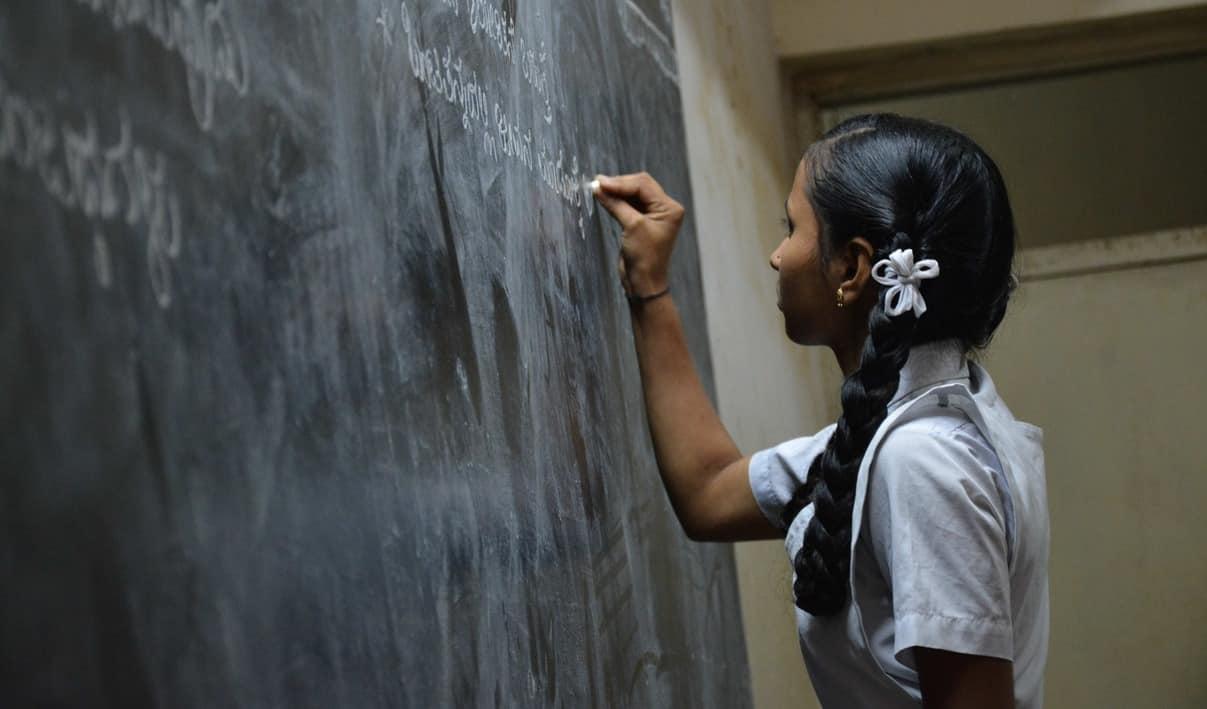Q. I am an IT professional with a stable income, I am in the highest tax bracket. I am a single mother of a girl child. I wish to secure the education of my daughter and intend to invest in a 0 risk government scheme for the same. I am utterly confused about which government scheme to invest in. Can you please tell me which fixed income government scheme is currently providing the highest return and eligibility, lock-in, and features of the same?
Anjali Vasvani, Nashik, Maharashtra
Amongst all the government fixed income schemes Sukanya Samriddhi Yojana is providing the highest return. Sukanya Samriddhi Yojana is a central government initiative launched by Prime Minister Narendra Modi as part of the "Beti Bachao, Beti Padhao" campaign. The objective of this tax-saving scheme is the betterment of girl children in the country.
What is the Sukanya Samriddhi Yojana (SSY)?
Sukanya Samriddhi Yojana (SSY) is one of the government-backed savings schemes in India. This scheme, which was introduced in 2014, allows parents or legal guardians to open a Sukanya Samriddhi account in any authorised bank or post office on behalf of a girl child (up to the age of 10). The scheme offers tax-free returns with EEE (exempt-exempt-exempt) status. One can deposit up to ₹1.5 lakh in a single SSY account during a financial year and claim tax exemption on the entire ₹1.5 lakh under Section 80C of the Income Tax Act, 1961.
Key Features
1. Eligibility
- The accounts can only be opened by a girl's parents or legal guardian.
- At the time of account opening, the girl child has to be under the age of 10 years.
- A girl child can only have one account open in her name.
- A family is only permitted to have two SSY accounts, one for each girl child.
2. Deposit limits
The minimum annual contribution to the Sukanya Samriddhi Account is Rs. 250, while the maximum annual contribution is Rs. 1.5 lakh in a financial year. A Sukanya Samriddhi account can become a default account if the minimum deposit is not made in a financial year. The defaulted account may be reactivated prior to the completion of 15 years from the date of account opening by paying at least Rs. 250 plus Rs. 50 for each defaulted year.
3. Tenure/Maturity period
Sukanya Samriddhi Yojana has a tenure of 21 years or until the girl child marries after reaching the age of 18. However, contributions are required for only 15 years. After that, even if no deposits are made, the SSY account will continue to earn interest until it matures.
4. Premature withdrawal
There are certain circumstances in which the account can be closed and the respective amount can be withdrawn:
- The untimely passing of the account owner: In the event of the untimely death of a registered girl child, the parents or legal guardian are eligible to claim the account's balance and accrued interest. The amount will be transferred to the account's nominee. Additionally, the parents or legal guardian must submit the necessary documentation verifying the death of the account holder duly attested by the concerned authorities.
- Inability to continue the account: The Sukanya Samriddhi Account may be prematurely closed if the accounts office is satisfied regarding the depository's inability to maintain the account. Additionally, the account can be closed if the depositor is experiencing any type of financial strain as a result of their account contributions. In addition, the proper authorization must be obtained from the relevant authorities in order to close and settle the account.
Note that the closing of a Sukanya Samriddhi Yojana account will only be permitted in extreme circumstances, such as life-threatening illnesses or medical emergencies.
5. Taxation
In terms of taxation, SSY investments are classified as EEE (Exempt, Exempt, Exempt) investments. This means that the principal invested, interest earned, and maturity amount are exempt from taxation. Under the existing rules of the Sukanya Samriddhi Yojana, Section 80C of the Income Tax Act of 1961 allows a tax deduction on the principal amount invested of up to ₹1.5 lakh per year.
Benefits of investing in Sukanya Samriddhi Yojana (SSY)
The Sukanya Samriddhi Yojana was introduced as part of the Beti Bachao, Beti Padhao Yojana initiative, which offers a variety of benefits to investors. Some of the key benefits of this scheme are as follows:
- Interest Rate: SSY offers a higher fixed rate of return (currently 7.6% per annum for Q2 FY (2022-23)) than other government-backed tax savings schemes such as PPF.
- Returns: As a government-backed scheme, Sukanya Samriddhi Yojana offers guaranteed returns.
- Tax Benefits: SSY offers tax deduction benefits under Section 80C of up to Rs. 1.5 lakh per year.
- Flexible Investment: The minimum annual deposit is Rs. 250 and the maximum annual deposit is Rs. 1.5 lakh. This makes it possible for investors of all financial backgrounds to participate in the scheme.
- Compounding: Sukanya Samriddhi Yojana (SSY) is an excellent long-term investment scheme because it offers the benefit of annual compounding. Therefore, even small investments can produce great returns over the long term.
Conclusion
Parents of all girl children should not miss out on the opportunity to invest in SSY. No other government at present is currently providing such a high rate of interest. The return on SSY even beats the return promised by private financial institutions on their fixed deposits having similar tenure. Further, investments made in SSY are tax-free under Section 80C of the Income Tax Act, upto a limit of ₹1.5 Lakh.
Note: This story is for informational purposes. Please speak to a financial advisor for detailed solutions to your questions.
Kuvera is a free direct mutual fund investing platform.
